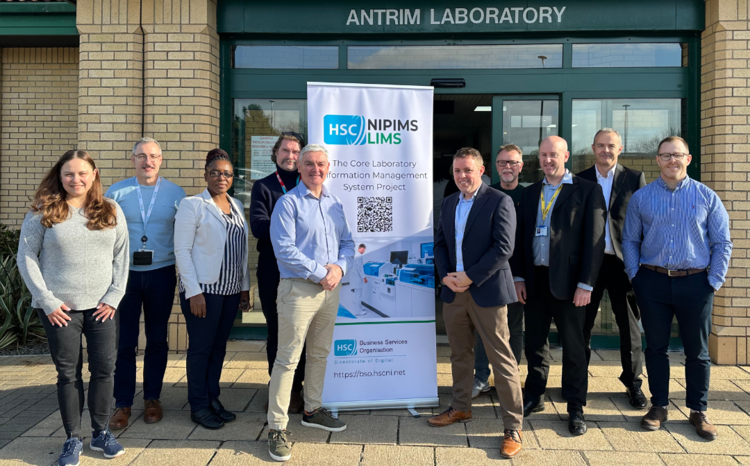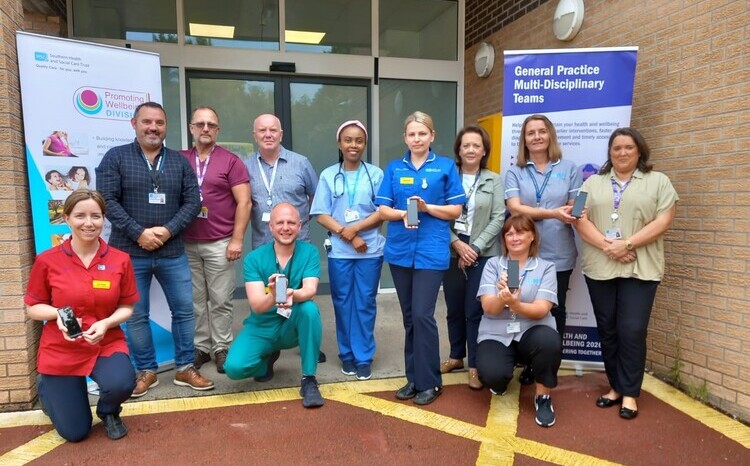Sharing the pain
- 12 November 2014

Asked to explain the benefits of the Northern Ireland Electronic Care Record, staff at the country’s Health and Social Care Board have used four words: “Better, faster, safer care”.
Yet, as Dr Brendan O’Brien told the CCIO Leaders Network Annual Conference, four different words have recently become important when selling the project: “We’re not care.data.”
Given that the subject of this year’s conference was information sharing, it was little wonder that the spectre of England’s troubled data sharing project loomed large.
The ambitious project to expand the Hospital Episode Statistics and then link them to other datasets, starting with GP data, caused a huge public outcry this spring, when NHS England sent out an information leaflet about the project that failed to mention it by name, or to include an opt-out form.
The pressure group 38 Degrees is currently fund-raising to try and stop the small number of pilots that have been given the go-ahead, mostly to test out new communications approaches.
Even so, it was perhaps surprising to hear the CCIO of the Northern Ireland Health and Social Care Board reveal that its impact had spread beyond its native land.
Tried it once…
The Northern Ireland project was one of a series of data sharing case studies presented at the conference, held alongside EHI Live 2014 at Birmingham’s NEC. All demonstrated the important role CCIOs are playing in encouraging better sharing of information; and making sure that clinicians and patients have confidence in that.
The precise methods and focuses of projects varied. Some were portal-driven, some concentrated on the interoperability of systems. Some were patient-facing, some for NHS staff. But all had faced challenges with information governance.
“When I started as a CCIO, I set up an information governance group. It lasted one meeting, and I said never again,” laughed Dr Michael Green, chief clinical information officer for South Devon NHS Foundation Trust.
“They were people who have expertise in why we can’t share information – the medical and legal restrictions. But that’s not what we’re trying to do – we’re trying to find out where information sharing makes things better. So now we have a new group, with different members, and have task/finish groups. It’s very successful.”
Finding a way through the IG
Opening the conference, Dr Maureen Baker had argued that CCIOs might be uniquely placed to navigate IG issues. She suggested their understanding of patient safety and care would enable them to focus on the fundamental reasons for data sharing – to drive better services.
“Patient safety is paramount – I do think should trump all other concerns and all other issues,” the chair of the Royal College of General Practitioners argued. “But there is a tension between perfect patient safety and perfect information governance, and we need to manage that.
“I think the CCIO community is absolutely on the frontline there, because you will be often be Caldicott guardians for your organisation and often the clinical safety officer, or possibly the medical director, and therefore hold the remit for patient safety.”
It seems CCIOs may also be best qualified to understand how best to manage the tricky issue of consent. Dr Green explained that the information sharing platform in South Devon is based on the belief that initial, explicit consent is unworkable.
Patients are opted in automatically, but have to give consent at point of care for their shared information to be viewed. The arrangement in Northern Ireland is virtually the same.
“It's explicit consent to view, so whenever a patient presents they are asked by the doctor if they consent to their shared record being viewed,” explained Des O’Loan, chief information officer and ICT strategy manager at The Health and Social Care Board.
He said most doctors report getting strange looks when they ask the question – why wouldn’t the patient want the person caring for them to have access to information which can support better care? Which is not to say that clinical governance wasn’t an issue for the Northern Irish project.
“It took about 18 months to work through the clinical governance issues,” O’Loan told delegates. “Every household in Northern Ireland was leafleted and there were posters in GP surgeries and adverts in newspapers to let people know what was happening.
“And there was an option for people to opt out. But in 1.8m people in Northern Ireland, and over 13 or 14 months of the system being live, less than 100 people have opted out.”
Even patient projects have issues
Even projects that work with patients run into similar issues. Daniel Ray, director of informatics at University Hospitals Birmingham NHS Foundation Trust, spoke of safeguarding issues when it came to Myhealth@QEHB – a project which makes it possible for patients to view their complete medical record.
“Local legal advice was that we should not give patients access to their full medical record if it was believed it would do them more harm than good,” he told delegates.
“So for people who have pre-existing mental health conditions, the advice was that it was safer for those patients if they have a conversation on a one to one basis with their clinician rather than being given blanket open access to their medical record.
“But this is a pilot. We’re trying to tread carefully, and whether that the long term position I don’t know right now.”
Dr Green made a similar point. “I think there is a cultural change that will have to take place before [information sharing] is going to work fully.”
Change, it’s tough
Dr Amir Mehrkar, the CCIO for the Hampshire Health Record, suggested such change “is really tough.” “We need to understand the rules really well, and ask whether it is now time to open up access further in a controlled and legal way,” he suggested.
“When these shared care systems formed, we had a definite consent to view model but times are changing. Our job as CCIOs is to ensure the right people come together for the planning so that everyone is empowered and safe.
“We need to create house rules to say it’s OK to look at information – to sell that message, and to ensure we have the right people looking at the right information.”
Dr Tony Shannon emphasised that there was no need for the wheel to be reinvented when it came to work on information governance. The CCIO for Leeds Teaching Hospitals NHS Trust explained that the organisations involved in the Leeds Care Record are trying to share their learning with other integration pioneers.
“We suggested we would try to deliver open requirements documents because we feel there is a lot of repeating of this analysis going on all over the country. One document will be on governance and information governance, working with NHS England.”
The conference left little doubt that sharing work on IG would be valuable – and of the value of organisations such as the CCIO Leaders Network in so doing.




